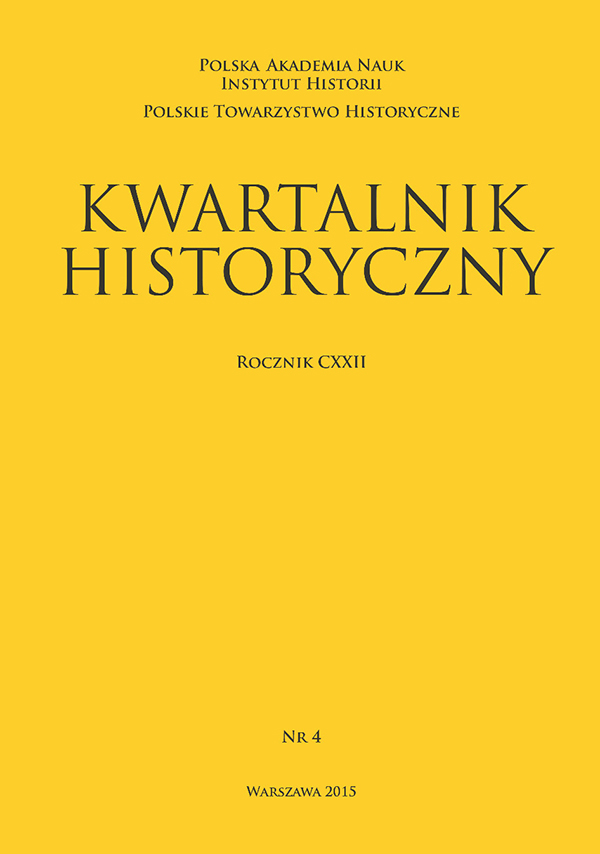Małżeństwo z rozsądku: katolicyzm i nowoczesność w dziewiętnastowiecznej Europie
DOI :
https://doi.org/10.12775/KH.2015.122.4.02Résumé
A Marriage of Convenience: the Roman Catholic Church and Modernity in Nineteenth-Century EuropeThis paper examines the problem of Dechristianization and secularization in nineteenth-century Europe, with a special emphasis on the Roman Catholic Church’s ways of reacting to modernity. The first part deals with changes in religious attitudes, on individual and collective levels, in the midst of rapid social and intellectual changes that took place in the nineteenth century. The building of the modern secular state structures was among the most important factors that weakened the position of the established churches.
The second part deals with the Roman Catholic Church. The argument is that the Church managed to come to terms with modernity and to escape secularization at the price of supporting modern radical nationalism in the early twentieth century. The Church, especially since the times of Pope Leo XIII, chose to embrace modernity in its conservative form as an alternative to the dominant rationalist-liberal type. It was a modernity nevertheless, and the transformations of the Catholic Church through the nineteenth and early twentieth century should be understood in terms of modernization (although an unenthusiastic one) rather than a resistance to modernity. The problem of Catholic liberalism and the reasons for its rather moderate influence is also discussed. On the whole, Peter Berger was right that “modernity is not necessarily secularizing; it is necessarily pluralizing”, i.e. it creates various possibilities of behaviour that can, but do not have to, lead to secularization.
Téléchargements
Publié-e
Comment citer
Numéro
Rubrique
Stats
Number of views and downloads: 498
Number of citations: 0



